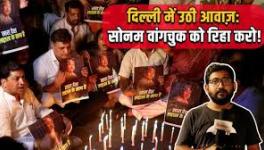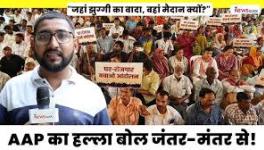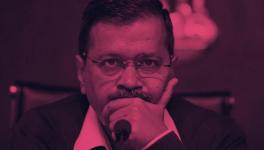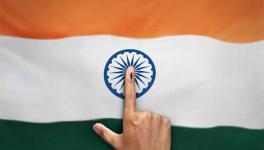Punjab Governor: Politics of Pressure or Intimidation?
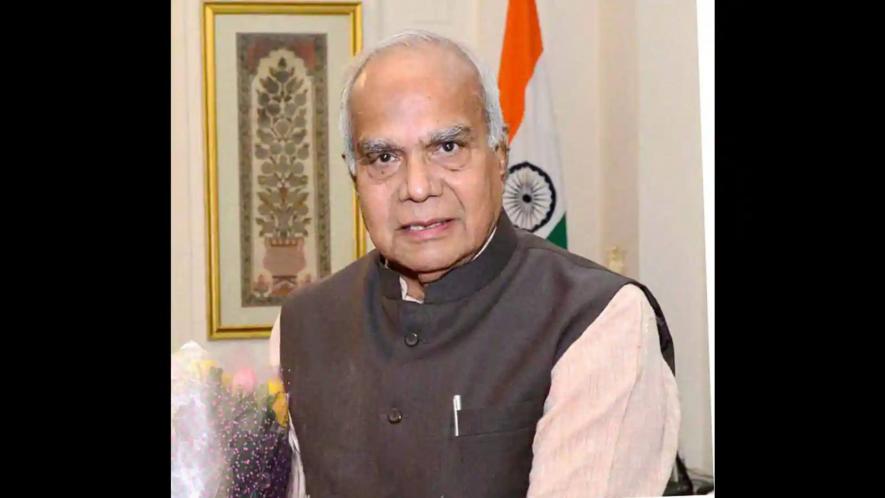
Punjab governor Banwarilal Purohit. Image Courtesy: PTI
In 2021, Banwarilal Purohit was appointed the Governor of Punjab, before which he was the Governor of Assam and Tamil Nadu. Though born in Rajasthan in 1940, until he became Governor, he was active in Maharashtra throughout his political career. He was elected twice as a Congress party candidate from the Nagpur Lok Sabha constituency and once as a minister at the Centre.
Purohit was also elected once to the Lok Sabha as a Bharatiya Janata Party (BJP) member from the same constituency. He lost elections thrice after he left the Congress party. When he was Governor of Assam, he also held additional charge of Meghalaya, after which he became the Governor of Tamil Nadu until 2021.
In this way, Purohit is a seasoned politician. As an octogenarian, he does not seem to have a very radiant future ahead—obviously, he is expected to be aware of this fact.
India is a country of unique politicians. It may be that the politicians of other South Asian nations are similar. Their uniqueness comes from their flexible approach concerning party affiliation. The only permanent pursuit of Indian politicians is to remain in power for as long as possible. When a power position remains elusive for some years, they change their party affiliation and join whichever party is in control.
The term ‘Aaya Ram, Gaya Ram’ was coined in the name of Gaya Ram of Haryana, who changed his political affiliation three times in 1967. The trend has never stopped despite the 2003 anti-defection law. The number of politicians joining or rejoining parties is so large that it has become difficult to keep track.
Governor Banwarilal Purohit also belongs to this category, though after becoming the Governor, he has status without power. Such a situation seems to be of great distaste to him. In his advantage are two things, both enabling him to exercise some power. First, in 2021, the government of India extended the border areas in the country from 15 km to 50 km, resulting in approximately two-fifths of Punjab’s area becoming a border region—a small state with a 425 km long border has been handed over to the jurisdiction of the Border Security Force.
Secondly, the Aam Aadmi Party (AAP) is in power in Punjab, and like other non-BJP-ruled states, the ruling party interferes in its functioning through the Governor. In a way, it is a godsend opportunity for the Governor, and how he has used it will be briefly outlined here.
The year 2022 was largely peaceful, without much confrontation between the Governor and the government, though not without a hiccup. In August, the Vice-Chancellor of the Baba Farid University of Medical Sciences, Dr Raj Bahadur, resigned after then-Health Minister Chetan Singh Jauramajra ‘humiliated’ him. The government appointed Dr Gurpreet Singh Wander, a famous cardiologist, in his place.
However, the Governor rejected the appointment, citing procedural reasons. In a way, the Governor was right, but the ministers’ reaction, including the Chief Minister, was quite strong. As a result of this controversy, Dr Wander resigned and left. Though the government had overreacted, the experience of the elected governments in non-BJP-ruled states might have prompted the Punjab leaders to react so sharply.
In September 2022, the Governor’s two-day visit to the six border districts of Punjab evoked tremendous reaction among the Congress party leaders, who accused the Punjab government of failing to check illegal mining and drug trafficking. The official reason cited for this visit was to ascertain the security situation. During his earlier four trips to the border areas—his prerogative as a central government representative in the extended border areas—he seems to be campaigning for the ruling party at the Centre.
However, one thing is clear. His every visit makes the government uncomfortable. Along the international border, there is tremendous drone activity. Drones fly from across the border and drop drugs and sometimes weapons along the border on the Indian side—a new way to smuggle such contraband across the border.
In February this year, the Punjab government sent the Governor the Cabinet’s decision to convene a Budget Session of the Vidhan Sabha with effect from 3 March for approval, which he refused. The Punjab government appealed to the Supreme Court, which directed the Governor to approve the convening of the session. When the budget was passed, the Speaker did not end the session but suspended it indefinitely. Obviously, AAP leaders did not want to have more trouble getting approval to convene future Vidhan Sabha sessions.
On 20 June, when the Vidhan Sabha was reconvened, the Punjab government made two amendments to the existing Acts. The first was regarding the telecast of the Gurbani, and the second was related to the appointment of chancellors of state universities in which the Chief Minister replaced the Governor. Both amendments have not been cleared by the Governor yet.
Over time, the contestation between the government and the Governor has been on the rise, in which the latter seems more aggressive. Wherever his approval is essential, he tends to reject the government’s decisions. Recently, he has started asking for explanations by putting up queries to the government. He has gone to the extent of publicly hinting that he has been preparing a file on the government—a way of threatening that he would ask the central government to dissolve the Assembly. His last query was regarding the rise of the state debt by “Rs 50,000 crore”. The tug of war continues, and it is not approaching an ending.
The AAP is getting used to this eerie situation, but its leaders know they are not alone in their fight and contestation against a Governor. Among the non-BJP-ruled states, Odisha and Andhra Pradesh governments have no problems, and in Chhattisgarh and Rajasthan, the state governments seem fine. However, the governments of Delhi, Kerala, Tamil Nadu, Telangana and West Bengal are facing the same issues with representatives of the central government. They are aware that the party in power at the Centre is to blame, and the only solution to these unabated and unnecessary conflicts is changing the party ruling at the Centre.
The author was a professor of sociology at the Guru Nanak Dev University, Amritsar, and former president of the Indian Sociological Society. The views are personal.
Get the latest reports & analysis with people's perspective on Protests, movements & deep analytical videos, discussions of the current affairs in your Telegram app. Subscribe to NewsClick's Telegram channel & get Real-Time updates on stories, as they get published on our website.









